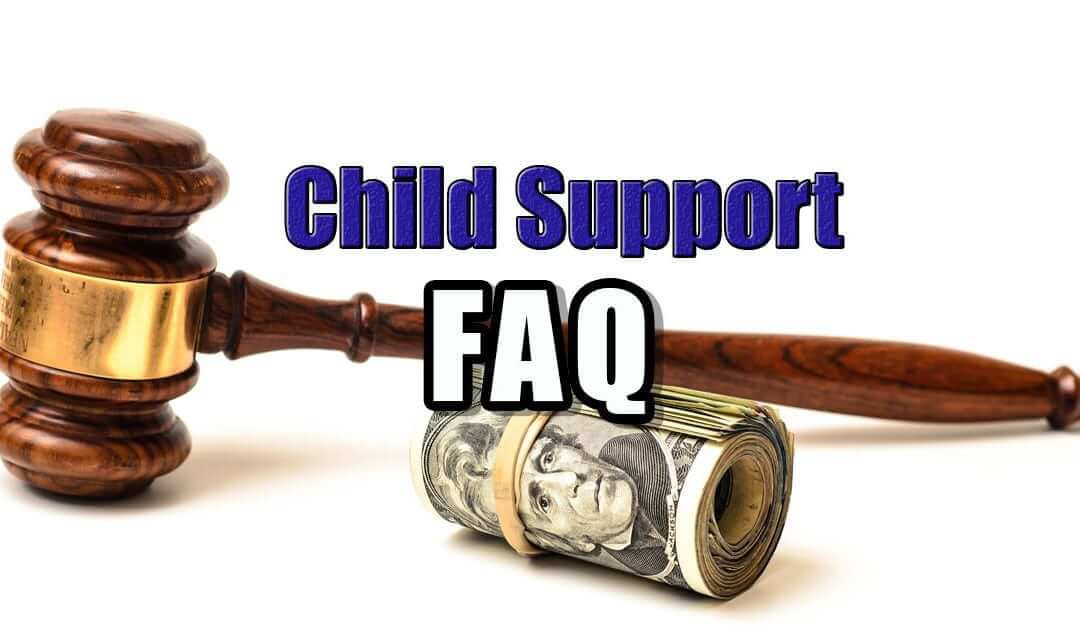
by Robert E. Hornberger, Esq | Aug 29, 2016
Who Must Pay Child Support on Long Island?
On Long Island, both parents have a legal responsibility to financially support their child. The parent with whom the child lives is known as the “custodial parent”. The parent who does not live with the child is known as a “non-custodial parent”. A non-custodial parent must provide financial assistance for the support of his or her child even though he or she does not live with the child. This is true even in cases where a child spends equal time with both parents. In such cases, if the non-custodial parent is the higher earning parent, he or she may have an obligation to pay child support to the custodial parent for the care of the child.
How is the Amount of Child Support Determined?
Long Island courts are governed by New York state law, which uses a formula to determine the child support obligation. That formula is generally as follows:
- 17% of the parent’s gross income for 1 child
- 25% of the parent’s gross income for 2 children
- 29% of the parent’s gross income for 3 children
- 31% of the parent’s gross income for 4 children
- 35% or more of the parent’s gross income for 5 children
Some non-custodial parents are also responsible for covering a certain percentage of medical, educational, and child care expenses. This percentage will be determined based upon the income of the non-custodial parent. Usually these costs are split up proportionally based upon how much each parent earns.
What If I Have Other Children & Cannot Afford This?
In some circumstances, where a non-custodial parent has to pay child support to two or more different custodial parents as a result of having children in two or more other relationships, that non-custodial parent may be able to argue that he or she cannot afford to pay the set percentage in these circumstances. For example, if a man fathers two children, each by different mothers, he would have to pay 17% of his income to one custodial parent for one child, and 17% of his income to the other custodial parent for the other child. The father may be able to successfully argue that he cannot afford the burden of paying out this much, and the court may modify the formula.
Similarly, where a father is raising children in his own home and paying child support for a child who does not live with him, he may be able to successfully argue that he cannot care for the child in his custody because of his child support obligations to his other child.
When Does the Child Support Obligation Begin?
The obligation to pay court-ordered child support begins when the custodial parent files a petition in court.
Can I Modify a Child Support Order?
A child support order can be modified only if there is a significant change in circumstances. A significant change in circumstances usually means a large increase or a large decrease in income.
Can I Modify the Amount of Child Support Arrears I Owe?
In New York State, the amount of overdue child support cannot be modified. If you anticipate that you will fall behind on payments, it is best to speak to a lawyer on how to get a modification before that happens.
What About Cases Where Paternity Has Not Been Established?
In order for the child support obligation to take hold, there must be a legal parental relationship established between the parent and child. A father has a legal parental relationship with the child when paternity has been established. This can happen in several ways: the father signs an acknowledgment of paternity, the father is married to the child’s mother at the time the child is born, or a court issues an order after genetic testing has shown the individual is the father.
What if a Parent Gets Remarried?
The remarriage of a parent does not change the child support obligation of the legal parent to that child. In cases where there is a termination of parental rights leading up to step-parent adoption, however, there is a change in the legal child support obligations.
What if the Custodial Parent Refuses to Allow Me to Visit With My Child?
Visitation and child support are separate issues, and a custodial parent cannot violate a court’s order to allow visitation. It is best to seek recourse in the court, such as by having a visitation order enforced or simply by asking the court for a visitation order if you do not have one.
If the Non-Custodial Parent Refuses to Pay Child Support, Can I Prevent Him or Her from Seeing My Child?
As stated above, New York State treats visitation and child support as separate issues. If you are not getting the child support that is owed to you, you should seek the advice of an experienced Long Island child support lawyer or family law attorney to go through your options.
If you have questions about your child support arrangement, you should speak to an experienced Long Island Child Support lawyer or Family Law attorney who can explain to you your rights and responsibilities. Our attorneys are experienced in all aspects of family law in New York State, and have helped many Long Island clients with their child support concerns. Contact us today at 631-923-1910 for a free consultation.
Check out our Divorce Guide for Dads for more information about divorce issues specifically related to fathers.
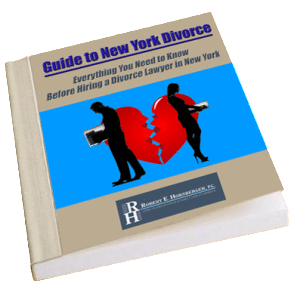
Download our Free New York Divorce Guide
Our 41-page “Guide to New York Divorce: What You Need to Know Before Hiring a Divorce Lawyer in New York” written by an experienced family law lawyer, Long Island’s Robert E. Hornberger, Esq., provides you with real information on the divorce process and the laws it rests upon in the state of New York. This book will help give you a solid foundation upon which you can begin the process of making your family’s, life better. Download your Free Guide to New York Divorce here.
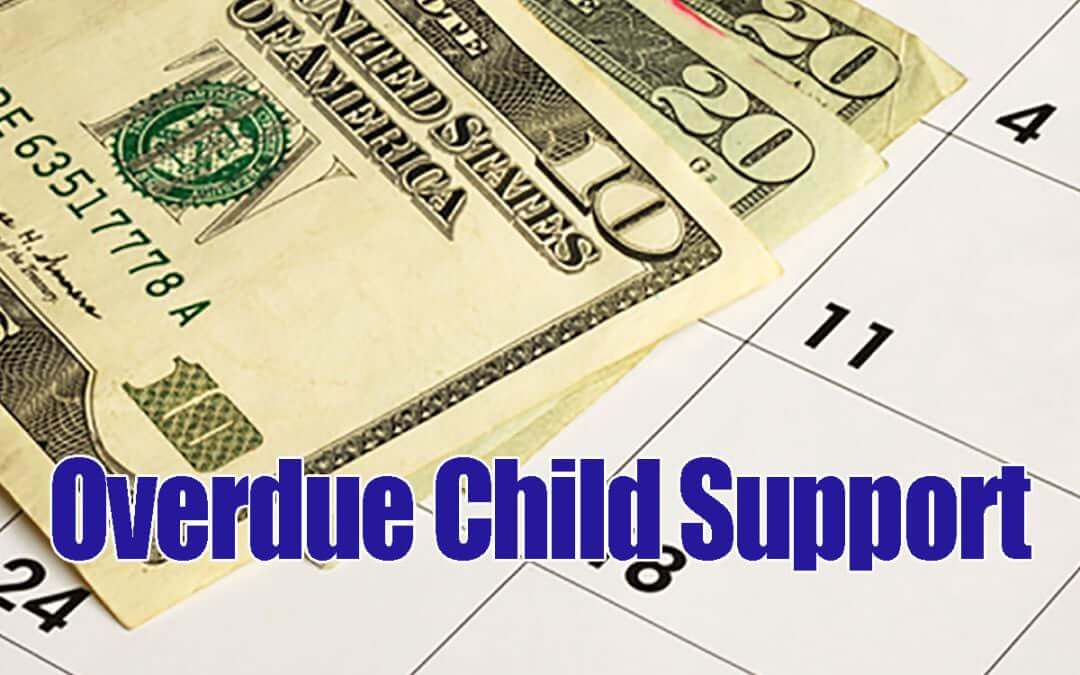
by Robert E. Hornberger, Esq | Mar 22, 2016
As a Long Island Divorce Attorney practicing in Nassau County and Suffolk County, I am often asked what to do about a spouse who has fallen behind in their child support payments. (more…)

by Robert E. Hornberger, Esq | Oct 20, 2015
As a Long Island Family Law attorney, I see first-hand, how the value of a father figure in a child’s life is immeasurable, yet I see some parents and families questioning or disregarding the value of legally establishing paternity. Under New York law, paternity is recognized as the legal status of being a father. The legal nature of paternity results in certain rights and responsibilities that would not exist absent the legal establishment of paternity, including child support obligations and visitation rights. The importance of establishing paternity lies in protecting the best interests of the child by providing the child with the same benefits as a child born to parents who are married.
How to Establish Paternity in Nassau County & Suffolk County, Long Island, New York
Legal Paternity in Nassau County & Suffolk County, Long Island, New York, is presumed when a child is born of a marriage and is therefore the legal child of both the father and the mother. Accordingly, if the child’s parents were married at the time of birth, paternity need not be established.
In the event a child is born out of wedlock, paternity can be established in two ways in New York. First, and most commonly effectuated, is an Acknowledgement of Paternity. In this situation, both parents sign a “Voluntary Acknowledgement of Paternity” form, in which both parents acknowledge that the man signing the form is the legal father of the child. If there is any doubt as to the identity of the natural father, this document should not be signed. The form must be signed by both parents and witnessed by two people who are not related to either of the parents. This form is usually signed at the hospital soon after the child is born; however, it can also be completed at some other time so long as it is signed by both parents and the independent witnesses in accordance with the law.
Second, paternity can be established by DNA tests, which have been shown to nearly conclusively establish whether an individual is a child’s natural father. Paternity establishment is also a way to determine the identity of the child’s biological father. In a situation where one parent does not wish to sign a voluntary acknowledgement of paternity or the natural father is unknown, a Petition may be filed with the court in Nassau County or Suffolk County. The petition may be brought by the mother, alleged father, the child, or a legal guardian of the child. The petition can be filed anytime from the pregnancy until the child turns 21 years of age. The Petition will ask the court to call both parents and the child into court in order to obtain DNA from the child and the purported natural father of the child. In this case, when the father is identified, the court will issue an Order of Filiation.
For the father, legal paternal status results in a right to legal custody, physical custody, and visitation with the child. The legal father is allowed to petition the court for visitation and custody of the child, which affects his right to be involved in his child’s life. A legal father must also be notified of any potential adoption of the child and will need his legal status as father to have standing to contest an adoption proceeding. Legal paternal status also gives the Mother the right to petition in Nassau County Family Court or Suffolk County Family Court for child support payments from the father.
Benefits of Establishing Paternity in Nassau County, Suffolk County, Long Island, New York
For the child, once paternity is established, he or she is able to have both parents’ names on their birth certificate, receive medical or life insurance from both parents, and receive increased financial security by means of inheritance, Social Security benefits, and child support. A child can also benefit from visitation or custody with his or her father.
The mother of the child benefits from having paternity established insofar as the father becomes legally responsible for the child in terms of financial support (child support), medical needs, and education. Once paternity is established, the mother may petition for child support so that the father will be legally obligated to contribute to the child’s food, clothing, school, day care, medical, and other basic expenses.
If two individuals are not married at the time of the child’s birth, and the father has not signed an Acknowledgement of Paternity, the father does not have legal rights and duties to the child and so paternity must be established. Even if parents live together or plan to marry at some future date, paternity should be established in order for the child and both parents to secure certain rights.
Receive a Free Consultation from an Long Island Family Law Attorney and Child Support Lawyer Experienced in Paternity Issues in Nassau County, Suffolk County, Long Island
If you have questions about establishing paternity or how to protect your or your child’s interests in Nassau County, Suffolk County, or anywhere in New York State, reach out to an experienced family law attorney and child support lawyer who can provide personal advice and assistance. Contact us at 631-923-1910 or fill out the short form on this page and we’ll get right back to you.
Download our Free New York Divorce Guide
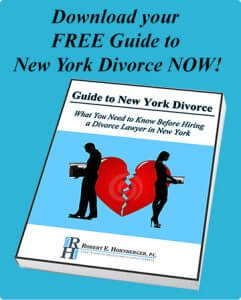 Our 41-page “Guide to New York Divorce: What You Need to Know Before Hiring a Divorce Lawyer in New York” written by an experienced divorce lawyer Long Island’s Robert E. Hornberger, Esq., provides you with real information on the divorce process and the laws it rests upon in the state of New York. This book will help give you a solid foundation upon which you can begin the process of making your family’s, life better. Download your Free Guide to New York Divorce here.
Our 41-page “Guide to New York Divorce: What You Need to Know Before Hiring a Divorce Lawyer in New York” written by an experienced divorce lawyer Long Island’s Robert E. Hornberger, Esq., provides you with real information on the divorce process and the laws it rests upon in the state of New York. This book will help give you a solid foundation upon which you can begin the process of making your family’s, life better. Download your Free Guide to New York Divorce here.
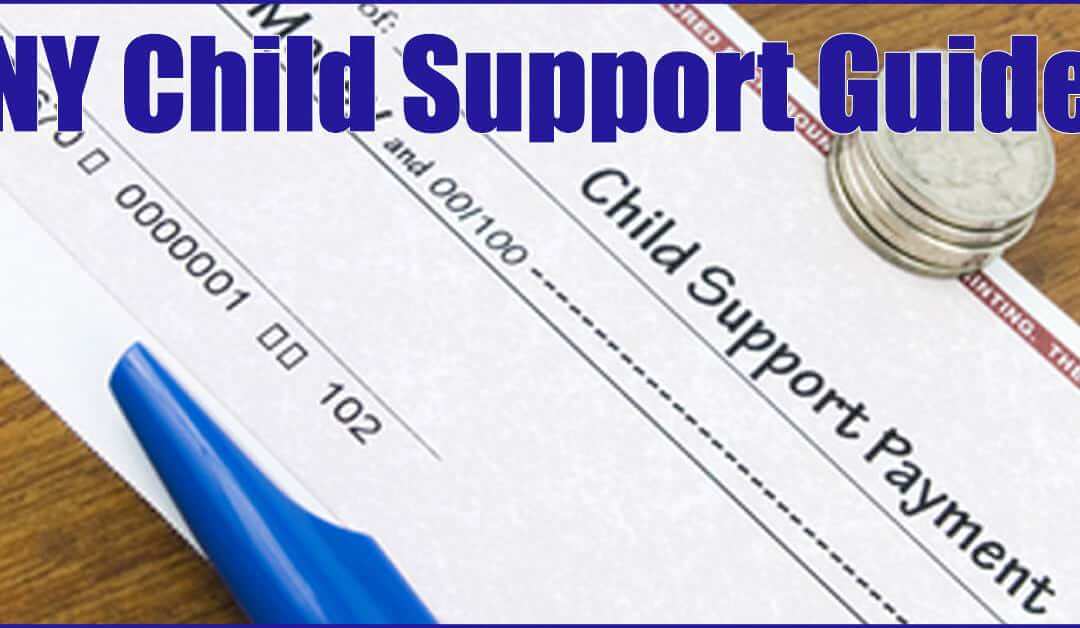
by Robert E. Hornberger, Esq | Oct 6, 2015
As a Long Island divorce lawyer, I see first-hand, every day that one area of divorce that causes the most stress for divorcing couples in Nassau County and Suffolk County is the matter of child support. Custodial parents are concerned they will be left with a larger financial burden than the non-custodial parent and the non-custodial parent is concerned that the money provided will not be spent on the child or children’s needs.
Child support is financial support provided by a non-custodial parent for the needs of the child or children, including basic needs such as food and clothing, medical and educational expenses, child care costs, and health insurance. The amount of support may be privately arranged between parents and caretakers, or may be determined by a Support Magistrate in Nassau County or Suffolk County Family Court.
Child support obligations in New York are governed by the Child Support Standard Act (CSSA), enacted in 1989, which provides a formula for determining each parent’s responsibility to provide financially for the his or her children. The CSSA takes into account both the income and expenses of both parents in order to calculate each parent’s pro rata share of child support.
Basic child support, before considering factors such as medical or educational expenses, is determined by calculating each parent’s share of the combined parental income, and using that percentage to determine the responsibility of each party. The income calculation is based upon gross income, usually reflected in the most recent tax return, as well as other income such as disability payments, rental income, and other government or employment benefits. A court may also consider non-recurring income such as gifts or lottery winnings in its calculation.
The percentage of combined parental income that is used to calculate basic child support under CSSA is as follows:
- 17% of the combined parental income for one child
- 25% for two children
- 29% for three children
- 31% for four children
- No less than 35% for five or more children
This formula is applied to combined parental income above the poverty income guideline ($11,770 annually for a single person), and up to $141,000. If a parent’s income falls below the poverty income guideline, the minimum amount for basic child support is $300 per year. Above the $141,000 threshold, the court will consider additional factors such as parents’ financial resources, additional needs of the child, and other factors it determines to be relevant. In circumstances where the total combined parental income amounts to over $141,000 the court may, but is not required to, use the percentages set forth by CSSA.
Retroactive child support may also be awarded from the date that the support was demanded. Child support will not be owed retroactively from the date of the child’s birth unless a demand was made at that time.
A court may also impute the income of a noncustodial parent if that parent is unemployed or underemployed. This may be done by basing the child support obligation upon the earning income of the individual. The imputation of income mechanism may be used by the court in instances in which it appears to the court that an individual is attempting to avoid child support obligations by remaining unemployed or underemployed.
For example, if a noncustodial parent is working “off the books,” the court may impute the income of the individual by evaluating that individual’s expenses and expenditures. For example, if a parent shows income of $11,000 per year, but his expenditures amount to $30,000 per year, a court may impute the true income by assuming that this individual earns at least $30,000 annually.
Overdue child support may be collected by the New York State Child Support Enforcement Bureau. Garnishment of wages, interception of unemployment benefits, tax refund interception, or property execution such as seizure of bank accounts are all lawful administrative procedures by which child support obligations can be enforced without going to court. Failure to pay child support can result in a noncustodial parent being held in contempt of court. This can result in a loss of driver’s license or even jail time if a noncustodial parent is ordered to pay but does not pay. A court will consider whether a noncustodial parent has truly fallen on hard times before holding the parent in contempt of court. For example, if a noncustodial parent has lost a job, incurred a large medical expense, or presents some other exceptional circumstances, the court may withhold its power to do so. However, it is important to remember that, under CSSA, this decision is entirely within the discretion of the court.
Finally, a custodial or noncustodial parent is permitted to petition the court for a modification of his child support arrangement in order to increase the amount due to increases in cost of living, or to decrease the amount due to a loss of income.
For more information on child support, visit the New York State Division of Child Support Enforcement Child Support Standards Chart at https://www.childsupport.ny.gov/dcse/custodial_parent_info.html#whatis and https://www.childsupport.ny.gov/dcse/pdfs/cssa_2015.pdf.
Receive a Free Consultation from a Long Island Divorce Lawyer Experienced in Child Support Issues in Nassau County, Suffolk County, Long Island
For more information about how to protect yourself and your children during your divorce in Nassau County of Suffolk County, contact a Long Island divorce attorney with great experience in child support and other divorce and family law matters. Long Island’s Robert E. Hornberger, Esq., PC and his compassionate and experienced divorce lawyers can help. Call us at 631-923-1910 for a complimentary, confidential consultation or fill out the short form on this page and we’ll get right back to you.
Download our Free New York Divorce Guide
 Our 41-page “Guide to New York Divorce: What You Need to Know Before Hiring a Divorce Lawyer in New York” written by an experienced divorce lawyer Long Island’s Robert E. Hornberger, Esq., provides you with real information on the divorce process and the laws it rests upon in the state of New York. This book will help give you a solid foundation upon which you can begin the process of making your family’s, life better. Download your Free Guide to New York Divorce here.
Our 41-page “Guide to New York Divorce: What You Need to Know Before Hiring a Divorce Lawyer in New York” written by an experienced divorce lawyer Long Island’s Robert E. Hornberger, Esq., provides you with real information on the divorce process and the laws it rests upon in the state of New York. This book will help give you a solid foundation upon which you can begin the process of making your family’s, life better. Download your Free Guide to New York Divorce here.
by Robert E. Hornberger, Esq | Jul 14, 2015
HOME ABOUT US OUR FIRM FIRM YOUR LEGAL TEAM ATTORNEYS YOUR ATTORNEYS ROBERT E HORNBERGER CHRISTINE M VERBITSKY ANNEMARIE LANNI LAWRENCE M. MARINO BRENDA LYNCH (Of Counsel) PRACTICE AREAS AREAS OF EXPERTISE What’s Involved In Divorce DIVORCE DIVORCE COLLABORATIVE...
by Robert E. Hornberger, Esq | Feb 17, 2015
HOME ABOUT US OUR FIRM FIRM YOUR LEGAL TEAM ATTORNEYS YOUR ATTORNEYS ROBERT E HORNBERGER CHRISTINE M VERBITSKY ANNEMARIE LANNI LAWRENCE M. MARINO BRENDA LYNCH (Of Counsel) PRACTICE AREAS AREAS OF EXPERTISE What’s Involved In Divorce DIVORCE DIVORCE COLLABORATIVE...
by Robert E. Hornberger, Esq | Jan 23, 2015
by Robert E. Hornberger, Esq | Oct 21, 2014
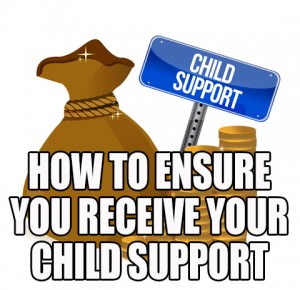 Child Custody and Child Support will be matters resolved during your Long Island Divorce. With the assistance of your Long Island Divorce Lawyer, you and your spouse may decide to agree to joint custody. Because this generally allows your children to spend an equal amount of time with both parents, many incorrectly believe this also eliminates the requirement of one parent paying child support. However, just because you and your spouse have elected to follow a joint custody arrangement does not mean that you have essentially opted out of being awarded (or having to pay) child support. When parties elect to follow a joint custody child custody arrangement, the spouse who earns more, regardless of the amount of time the children spend with this parent, is deemed the “non-custodial” parent for child support purposes. Therefore, the “non-custodial” spouse (the spouse who earns more per year) will still be required to pay child support pursuant to the Child Support Standards Act.
Child Custody and Child Support will be matters resolved during your Long Island Divorce. With the assistance of your Long Island Divorce Lawyer, you and your spouse may decide to agree to joint custody. Because this generally allows your children to spend an equal amount of time with both parents, many incorrectly believe this also eliminates the requirement of one parent paying child support. However, just because you and your spouse have elected to follow a joint custody arrangement does not mean that you have essentially opted out of being awarded (or having to pay) child support. When parties elect to follow a joint custody child custody arrangement, the spouse who earns more, regardless of the amount of time the children spend with this parent, is deemed the “non-custodial” parent for child support purposes. Therefore, the “non-custodial” spouse (the spouse who earns more per year) will still be required to pay child support pursuant to the Child Support Standards Act.
What is the Child Support Standards Act?
The Child Support Standards Act sets forth guidelines which the courts on Long Island, NY must follow when determining child support. Therefore, while a court may have the authority to look to individual factors and circumstances to determine child custody, it does not have the authority to modify the amount of child support which must be paid. The amount of support the non-custodial parent is required to pay weekly or monthly depends upon the number of children for which it is meant to support; for example, if the child support is for one child, the non-custodial parent will have to pay 17% of his or her adjusted gross income, while he or she will have to pay 31% of his or her adjusted gross income for four children. The non-custodial parent will also be responsible for a percentage of the unemancipated children’s medical, dental, educational, and extracurricular expenses. These costs can be divided equally between both parents, with each paying 50% of the expenses, or calculated dependent upon what percentage of the parties’ total income each earns and then paying that respective amount.
How is Child Support Collected on Long Island?
When filing an order for child support, your Long Island Divorce Attorney should alert you to the line on the form which gives you the option to have support collected through the Support Collection Unit of the Child Support Enforcement Unit. Both Nassau County and Suffolk County as well as all boroughs of New York City have individual Support Collection Units to handle cases located within its respective geographical boundaries. If you elect to receive your child support payments through the Child Support Enforcement Unit, it will keep track of payments due to you, including amount and frequency. The Child Support Enforcement Unit has many avenues available to it which allow it to obtain child support payments before funds even reach the hands of the non-custodial parent.
What Methods of Collection are Available to the Child Support Enforcement Unit?
First, and likely the most common method employed by the Child Support Enforcement Unit is income execution. In these instances, the non-custodial parent’s employer will be ordered to withhold the appropriate amount of child support from the non-custodial parent’s paychecks. If the non-custodial parent is unemployed and receiving unemployment benefits, the Child Support Enforcement Unit has the power to levy and intercept these funds as well. Additionally, the Child Support Enforcement Unit can levy any amounts owed to the non-custodial parent such as income tax refunds or anything he or she may have won by playing the lottery.
However, not all methods involve levying funds before they reach the hands of the non-custodial parent. The Child Support Enforcement Unit also has the power to suspend the non-custodial parent’s driver’s license, deny them the ability to apply for a United States passport, or place a lien against any property they may own.
What Does This Mean for Me?
If you have concerns that your spouse will fail to timely and adequately pay court ordered child support, it would be wise to discuss the benefits of the Child Support Enforcement Unit with your Long Island Divorce Attorney. While a divorce by its nature a stressful experience, knowing you will not have to worry about actively enforcing child support payments down the road can relieve some of the stress and ensure your children receive the support they deserve.
Need Help with Child Support Payments on Long Island? We Can Help
The experienced and compassionate Long Island divorce lawyers at Robert E. Hornberger, Esq., PC can help ensure you and your children receive the Child Support they deserve. Contact us today at 631-923-1910 or fill out the short form on this page for a complimentary consultation.
by Robert E. Hornberger, Esq | Sep 16, 2014
 It is a few years or even a few months after your Long Island divorce attorney finalized your divorce and you find yourself in a much different financial position than you were when your judgment of divorce was entered. You may now be living paycheck to paycheck; you may have lost your job, or fallen ill or experienced some other life-changing event which has modified your income. You now find yourself unable to keep up with the Child Support payments a Nassau County or Suffolk County court originally ordered. You want to support your children, but you have questions such as:
It is a few years or even a few months after your Long Island divorce attorney finalized your divorce and you find yourself in a much different financial position than you were when your judgment of divorce was entered. You may now be living paycheck to paycheck; you may have lost your job, or fallen ill or experienced some other life-changing event which has modified your income. You now find yourself unable to keep up with the Child Support payments a Nassau County or Suffolk County court originally ordered. You want to support your children, but you have questions such as:
- Do I have any recourse in the matter?
- Is there any way I can seek a downward modification of the order?
- Will my ex-spouse be able to bring a judgment against me when I am inevitably unable to pay?
On the other hand, as a custodial parent, you may feel that the amount agreed to by you and your ex-spouse is no longer adequately covering the needs of your children. They may be entering the age of sports and after school activities and they may need additional money to be able to participate. While your first avenue should be to speak to a Long Island divorce attorney, the following are some guidelines to educate you on what you may expect before that meeting.
Under What Situations Can Child Support be Modified?
- Substantial Change in Circumstances. This provision protects the non-custodial parent who may have fallen ill or is dealing with other unforeseen and unanticipated events that alters his or her ability to satisfy the child support obligation. It also protects the custodial parent who now cannot adequately provide for the children with the original support order due to his or her inability to work. In these instances, the party moving for the modification must show that his or her earning capability, and not in fact what he or she actually earns, makes it impossible to satisfy the order. Essentially this is a catch-all criterion for cases that do not meet either of the following two circumstances.
- Three Years Have Passed Since A Modification Was Requested. These grounds are pretty self-explanatory. If three years have passed since the child support order was entered, modified, or adjusted, you can file for a modification of that order. This allows for the opportunity for a modification solely on the passage of time and does not require a change in circumstances or income of either party.
- There Has Been a 15% Change in Your Income. If you are the non-custodial parent you may be reading this article and think to yourself that you can quit your job and work below your means in order to avoid any child support obligations. However, this is not a good idea. Naturally courts do not look favorably upon the active avoidance of responsibilities, and therefore, if you have voluntary quit or taken a lower paying job, it is unlikely your request for a downward modification will be granted. This provision is meant to protect the non-custodial parent who is fired from his or her job and can no longer make the payments through no fault or his or her own. The same theory is applicable to the custodial parent. Additionally, if the custodial parent is seeking an upward modification, he or she must show that the non-custodial parent’s income has increased by at least 15%.
What Can I Do to Strengthen My Case for Modification of Child Support?
While your Long Island divorce attorney will ultimately instruct you as to exactly what you need to prove your case for modification of child support, you may be able to make the process easier by keeping track of certain things beforehand. If you have lost your job and are unable to pay, keep copies of any correspondence with your former employer concerning the discharge, copies of all resumes and job applications you have sent out in an attempt to obtain new employment, and in the event you do obtain new employment you should save copies of your pay-stubs to prove what you are currently making.
If you are ill and unable to work, you should naturally save copies of any doctor’s letters that represent that fact and copies of prescriptions or anything else evidencing proof of your illness. Your case is always stronger when you can provide relevant documentation.
Need Help with Your Child Support Agreement?
The experienced and compassionate Long Island divorce attorneys at Robert E. Hornberger, Esq., PC firmly believe that parents need to take financial responsibility for their children. However, we also hate to see either party, custodial or non-custodial, taken advantage of by a child support agreement that is out of date with their financial situation today. We have helped many Long Islanders modify their Child Support agreements to ensure the children are taken care of without imposing an undue hardship on either parent. Contact us today at 631-923-1910 to learn how you can have your Child Support Agreement modified to protect your children, and yourself.
Check out our Divorce Guide for Dads for more information about divorce issues specifically related to fathers.
by Robert E. Hornberger, Esq | Jul 8, 2014
 The legalization of Same-Sex Marriages in New York has far-reaching implications for Long Island couples who have children in these marriages, particularly with regards to death, divorce and child support. While both spouses cannot be biological parents of the child or children of the marriage, should the non-biological parent/s and children born during that marriage be afforded the same legal protections opposite-sex spouses have enjoyed?
The legalization of Same-Sex Marriages in New York has far-reaching implications for Long Island couples who have children in these marriages, particularly with regards to death, divorce and child support. While both spouses cannot be biological parents of the child or children of the marriage, should the non-biological parent/s and children born during that marriage be afforded the same legal protections opposite-sex spouses have enjoyed?
Children Born of Marriage Deemed ‘Legitimate’ on Long Island, NY
The law in New York provides presents a strong presumption of legitimacy to children born of a marriage. This presumption arises not only from case law rulings, but also from its codification in Section 24 of New York’s Domestic Relations Law. Both provide that any child born to married parents is presumed to be “the legitimate child of both parents.” Non-marital children, therefore, are not afforded this presumption, and are seen as the legitimate child of only the mother.
Benefits of Legitimacy
In order to be the legitimate child of the father, there must be facts and circumstances to prove such. While you may be wondering why this matters, one important benefit of being afforded said presumption is what happens upon the death of a parent to whom the child is not deemed to be a legally legitimate child.
When an illegitimate child’s father dies without a will, the child must prove paternity, either through a court order or other evidence, such as the father having held the child out as his own during his lifetime, in order to inherit through the father’s intestate distribution scheme.
A second issue arises upon the divorce or separation of a couple. A parent is entitled to visitation and/or child support for a child born of a marriage; however, a parent of an illegitimate child may be legally excluded from seeing that child upon divorce or separation. Accordingly, the presumption affords marital children a large benefit over non-marital children. However, with the recent passing of New York’s Marriage Equality Act, which recognizes same-sex marriages, the issue of whether this presumption applies to same-sex marriages as well has reached the courts.
Wendy G-M. v. Erin G-M.
This case, which was heard in New York’s Supreme Court in Monroe County, centered on a child born to a same-sex couple via artificial insemination. The couple, which was legally married, consented to the procedure and executed a document providing that any child born of the procedure would be “accepted as the legal issue of [the] marriage.” The non-birthing spouse was involved in the process and pre-birth rituals, such as birthing classes and name choosing, to the same extent as the birth-spouse was, and the child’s birth certificate has both women listed as her parents. Not long after the birth of the child, the couple separated, the birth-spouse filed for divorce and subsequently prohibiting her partner to visit with the child. If the non-birth parent was considered to be the child’s legitimate parent, she would have a right to visitation and the birth mother could not legally prohibit that right without a court order.
Does the Same Presumption Apply to Same-Sex Marriages?
Because the New York Courts had previously held that the term “parent” does not contain gender-specific boundaries, the court in Wendy G-M. v. Erin G-M. held that the presumption of legitimacy applies to children born of same-sex marriages as well.
Furthermore, courts have stated that any changes in the definition of the term “parent” cannot come from case law, but rather should come from changes in legislation that represent the growing views of the community. More specifically on the topic of artificial insemination, the Domestic Relations Law provides that a child born of artificial insemination is not the legitimate child of the anonymous donor, but of the husband and wife to which the child is born. Therefore in such instances, when all statutory requirements are met, there is a rebuttable presumption that a child born of artificial insemination is the child of the marriage.
So long as both parents consent to and are involved in the procedure, and there is intent that both parties be considered to be the legitimate parents of the child, there is no legal difference between opposite or same sex marriages. As with most, this presumption is rebuttable and can be negated by either spouse; “the birth-mother could produce evidence that she never intended her spouse to be the parent … [and] the unknowing, non-biological spouse, would be required to overcome the presumption of consent, and prove lack of consent.”
What Does this Mean for Me on Long Island?
If you are in a same-sex relationship in New York, any child born of your marriage through artificial insemination, so long as there is consent on behalf of both of you and your partner, will be presumed to be the legitimate child of the marriage. Therefore, if you are seeking a divorce, the birth-spouse cannot prohibit the non-birth parent from visitation rights with the child, nor can be excused from child support payments.
Have Questions About Your Parental Rights and Responsibilities? Speak to an Experienced and Compassionate Long Island Divorce Attorney
The Long Island divorce attorneys and divorce mediators at the law firm of Hornberger Verbitsky, P.C. are experienced in all aspects of divorce law on Long Island, including those impacted by the recent Marriage Equality Act. To schedule an appointment for a complimentary consultation to discuss your case, contact our offices at 631-923-1910.





















